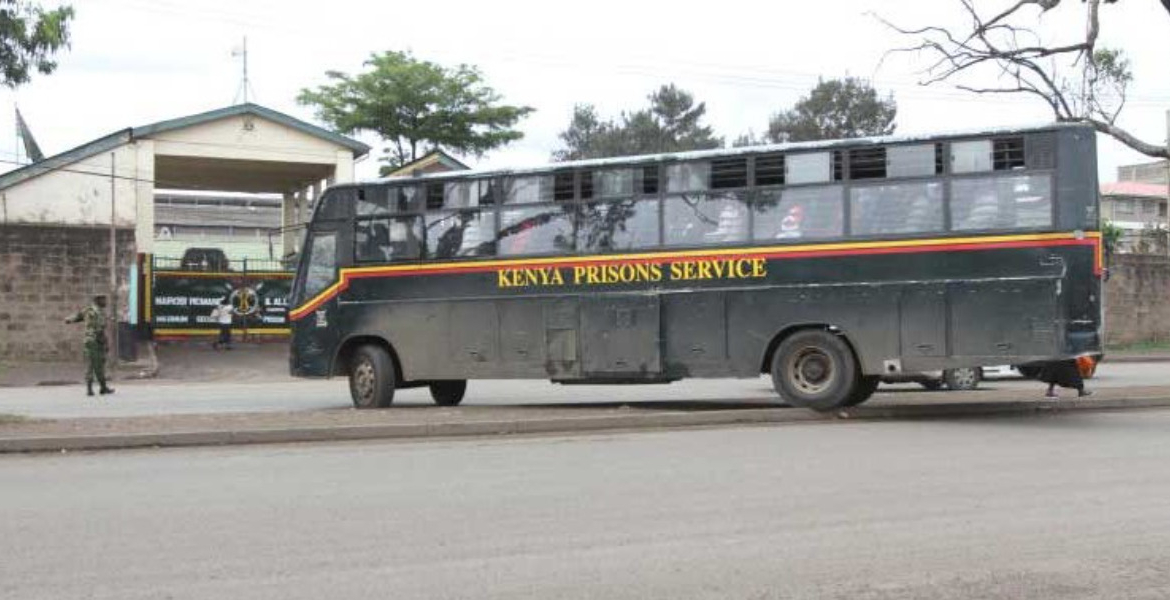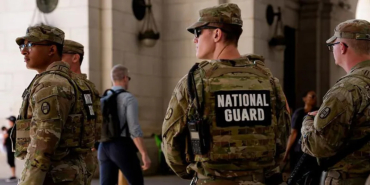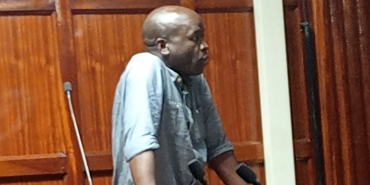Kenyan Senators Demand Action Over Rising Deaths in Police and Prison Custody

The Kenyan Senate has initiated a comprehensive investigation into an alarming surge in deaths occurring within police and prison custody, prompted by growing concerns over accountability and human rights violations within the country's law enforcement system.
The inquiry, led by the Senate Committee on National Security, Defence, and Foreign Relations, follows the recent death of Sylvester Mwangoji at Weruga Police Post in Taita Taveta County, highlighting a pattern of unexplained fatalities among detainees. Taita Taveta Senator Johnes Mwaruma, addressing the Senate, emphasised that Mwangoji’s death was not an isolated event, but rather part of a disturbing trend that demands immediate attention and transparent investigation.
"It is profoundly troubling that these deaths occur without prompt accountability, thorough investigations, or robust reporting mechanisms," stated Senator Mwaruma. "We need to ensure that every case is examined, and that justice is served where misconduct is evident."
The committee, chaired by Isiolo Senator Fatuma Dullo, is tasked with reviewing custodial deaths dating back to 2022. The probe will focus on compiling detailed reports on deceased detainees and prisoners, including the circumstances surrounding their deaths, to determine whether negligence or brutality played a role. Senators have demanded that the National Police Service (NPS) and Kenya Prisons Service (KPS) disclose key details regarding custodial deaths, including names, dates, locations, and causes of death, along with the status of investigations into each case.
The committee aims to assess whether law enforcement agencies maintain an updated and publicly accessible register of these deaths. Additionally, the Senate aims to scrutinise the effectiveness of independent investigative bodies in probing deaths in custody. Lawmakers have expressed scepticism about whether these bodies adequately investigate such deaths and whether their findings are made available to the public, raising questions about the independence and transparency of the process.
This investigation comes against a backdrop of persistent allegations of abuse within Kenyan detention facilities. Over the years, reports of torture, excessive use of force, and deaths under suspicious circumstances have fueled distrust in the country's law enforcement system. Several recent cases have further heightened concerns. In January, a defilement suspect died under unclear circumstances at Bondeni Police Station in Nakuru, raising questions about custodial practices.
Two months later, an inmate at Kibos Maximum Prison died while receiving medical treatment after allegedly being assaulted by prison wardens for protesting against inadequate food rations. These incidents are part of a long history of custodial deaths linked to law enforcement brutality. In 2018, former Ruaraka Officer Commanding Station (OCS) Nahashon Mutua was convicted for the torture and killing of a suspect, Martin Koome, in 2013—a case that exposed extreme violence within police cells.
The court found that Mutua had assaulted Koome with a metal pipe and had drowned his head in a drum of water. Similarly, in 2019, two officers stationed at Naivasha GK Prison were interdicted following revelations that an inmate had suffered fatal injuries due to torture. The Kenya National Commission on Human Rights, in its report, detailed how beatings and other forms of abuse were used to maintain control over inmates.
One of the most shocking incidents occurred in 2009 when six detainees were found beaten to death inside a Kenyan police station. While authorities claimed the men had fought among themselves, human rights organisations attributed their deaths to violent treatment by officers. The Senate also seeks to assess the adequacy of Kenya’s legal and institutional frameworks in protecting the rights and welfare of detained persons.
Questions have been raised about whether existing mechanisms sufficiently safeguard individuals from mistreatment and whether authorities are held accountable when detainees die under suspicious circumstances. Senator Mwaruma has called for a review of disciplinary measures against officers implicated in custodial deaths. Lawmakers want confirmation that administrative and legal actions are taken when negligence or excessive force is established, ensuring that those responsible are held to account.
International human rights organisations have documented cases of excessive force, overcrowded cells, poor sanitation, and lack of medical care within Kenyan prisons and police stations. Amnesty International and Human Rights Watch have frequently called for reforms to align the country’s detention practices with international human rights standards. The lack of transparency surrounding custodial deaths remains a significant challenge, with families of deceased detainees often struggling to access information or seek justice.
Many cases remain unresolved due to bureaucratic delays, lack of independent oversight, or obstruction by law enforcement agencies. The committee’s final report, expected to detail systemic failures and propose policy changes, could serve as a turning point in efforts to ensure humane treatment within Kenya’s detention facilities.








Add new comment